ASIC Miner ICERIVER KAS KS0 Profitability In the realm of cryptocurrency mining, the Iceriver KAS KS0 miner has garnered widespread attention. Tailored specifically for the Kaspa network's KHeavyHash algorithm, it boasts high hashing power and low power consumption, making it an ideal choice for many miners. In this article, we will comprehensively assess IceRiver KS0 profitability while considering the Kaspa market conditions and the attributes of KS0 miner. Kaspa Market Dynamics Kaspa is a vibrant cryptocurrency network aimed at delivering high performance and scalability for everyday transactions. At the time of writing this article, the Kaspa coin trades at approximately $0.04959. But it's essential to note that cryptocurrency markets are highly susceptible to price volatility. Hence, investors must remain vigilant about market dynamics. Additionally, the Kaspa network's mining difficulty and reward mechanisms play a role in mining returns. Attributes of the IceRiver KS...
How to test the voltage and ground value of the Antminer S17+ hash board power supply unit?
Antminer S17+ hash board power supply unit
Voltage and ground value test of Antminer S17+ power supply unit
1. 21V voltage test
Test method: adjust the fluke multimeter to DC gear, put the red test lead on the positive pole of the hash board power interface and the black lead on the negative pole of the power interface.
2. PIC chip voltage test
There's a black spot on the PIC chip, that's the 1st Pin.
Test method: multimeter DC gear, measure whether the 2ed Pin of the PIC chip has output; the normal voltage is about 3.3V. If there is no 3.3V, please check the connection status of the hash board test line, whether the hash board is normal, and if not, re-program the PIC.
3. MOS tube voltage test
There is a white dot next to the MOS tube, which is 1st Pin. The voltage of the MOS tube is the 1st Pin input and the 8th Pin output.
Test method: the multimeter is in DC gear, the black test lead is placed on the negative pole of the capacitor, and the red test lead is placed on the first or 8th Pin of the MOS tube. The input and output values of the MOS tube voltage can be measured. Normally, there will be 21V input and output.
If the voltage is abnormal, it is necessary to measure the ground value of the MOS tube. Adjust the multimeter to the diode gear, put the red test lead on the capacitor's negative pole and put the black test lead on the 1st or 8th Pin of the MOS tube. If the ground value is abnormal, replace the MOS tube. (To judge whether the resistance value of the MOS tube is abnormal, you can compare it with other MOS tubes)
4. 24V voltage test
Through D5 / D8, 24V voltage can be measured.
Test method: the multimeter is in DC gear, and the red and black test leads are placed on both ends of D5 or D8 respectively.
5. LDO 1.8V and PLL 0.8V output voltage test
There is a white dot next to LDO 1.8V, which is 1st Pin. The LDO 1.8V voltage is the 1st Pin input and the 6th Pin output.
Test method: the multimeter is in DC gear, the black test lead is placed on the heat sink of the same domain, and the red test lead is placed on the 1st Pin, normally there will be 3.5V input, the red test lead is placed on the 6th Pin, and there will be 1.8V output normally.
There is a white dot next to PLL 0.8V, which is 1st Pin. PLL 0.8V voltage is the input of 1st Pin and the output of 5th Pin.
Test method: the multimeter is in DC gear, the black test lead is placed on the heat sink of the same domain, and the red test lead is placed on the 1st Pin, normally there will be 1.8V input, and the red test lead is placed on the 5th Pin, and there will be 0.8V output normally.
If the voltage is abnormal, it is necessary to measure the ground value of LDO 1.8V and PLL 0.8V. Adjust the multimeter to the diode gear, put the red test lead on the same domain's heat sink and put the black test lead on the 1st Pin. If the ground value is abnormal, replace the corresponding LDO 1.8V and PLL 0.8V. (To judge whether the resistance of LDO 1.8V and PLL 0.8V is abnormal, you can compare other LDO 1.8V and PLL 0.8V)

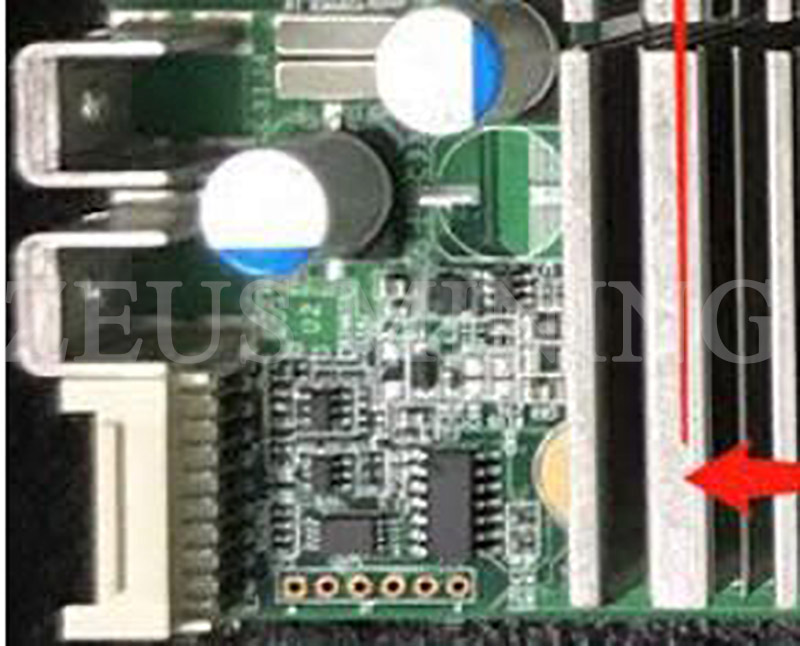

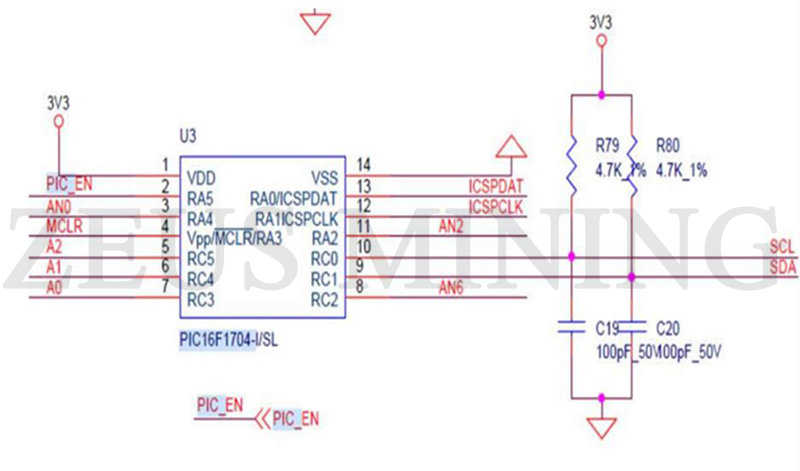

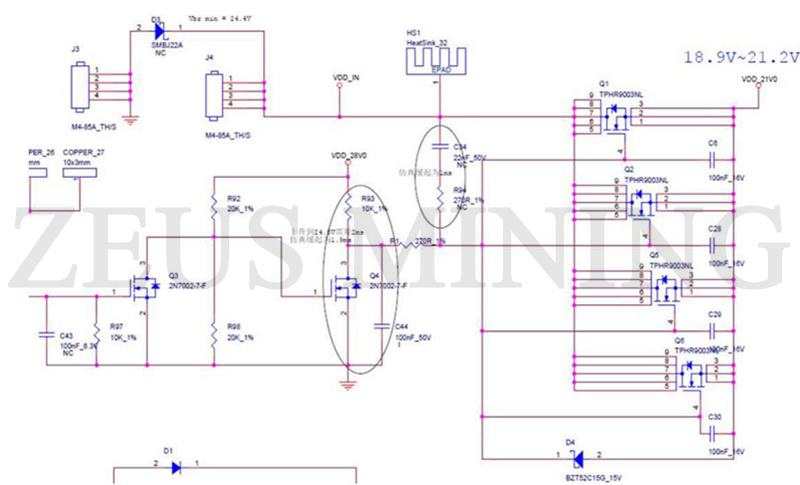

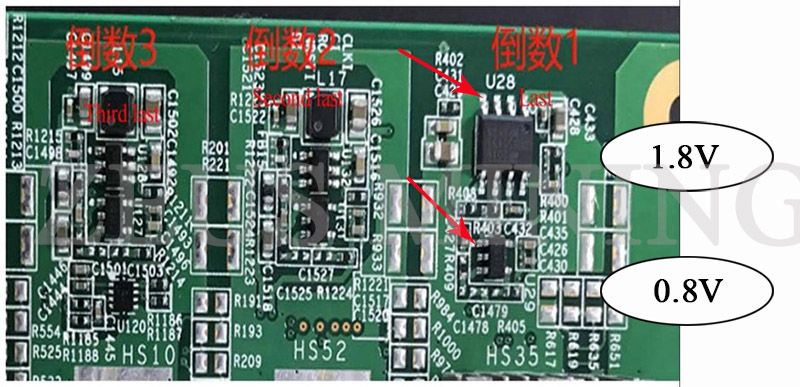
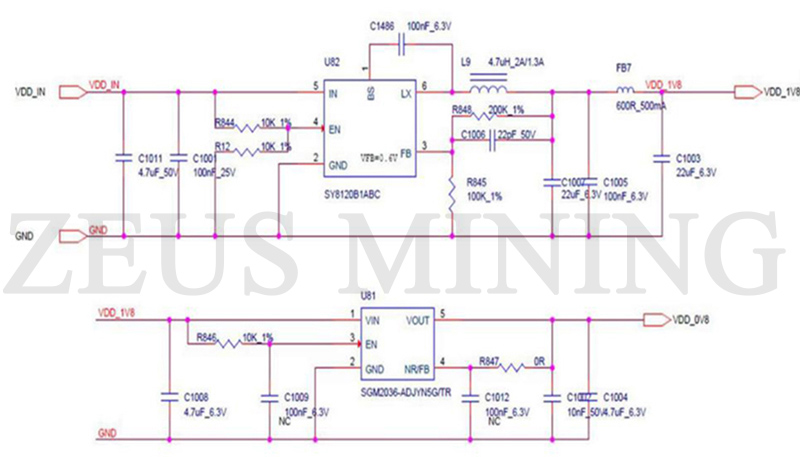
Comments
Post a Comment
Tell us your opinion